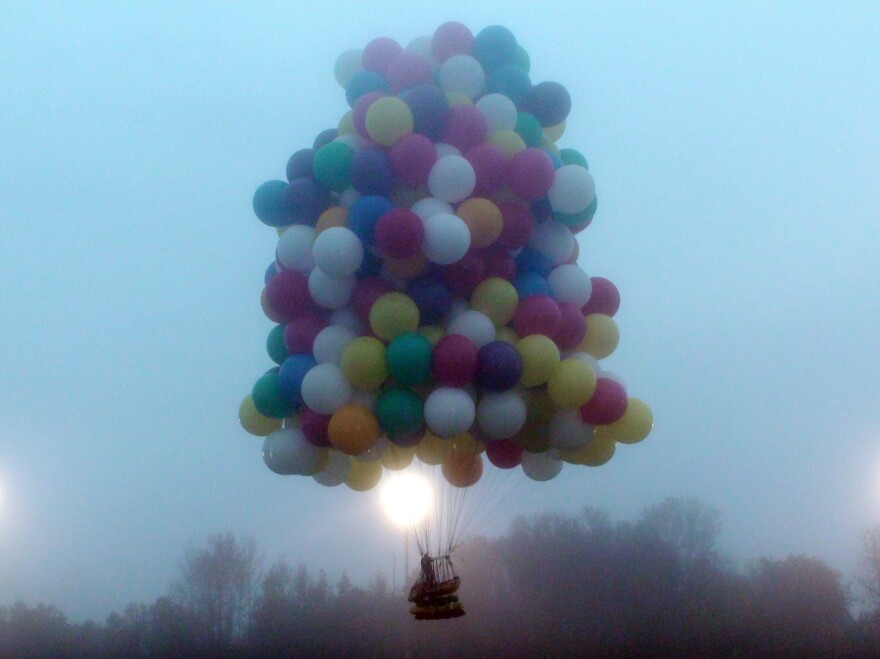Before we even had a chance to tell you he was up, Jonathan Trappe is down.
"Hmm, this doesn't look like France," says the American aviator on his Facebook page.
Trappe left from Caribou, Maine, on Thursday on a bid to fly across the Atlantic in a small boat hanging beneath about 300 helium-filled balloons. Think Up.
No one's ever made that trip using a "cluster balloon" rig.
But less than a day and only about 350 miles later, Trappe is down on dry land in Newfoundland, Canada.
Trappe, 39, was "foiled by what his team have called a 'technical issue,' " according to The Guardian. It adds that:
"Kevin Knapp, speaking from the command centre overseeing Trappe's flight, told Aero News Network, the cluster balloon was never able to achieve a stable altitude and developed a yo-yo effect — rapid descents with the aircraft hitting the surface of the water, followed by rapid ascents to altitudes as high as 21,000ft or more."
Aero News Networks reminds readers that:
"Trappe has already made history as a cluster balloon pilot having been the first to cross Lake Michigan, the English Channel and the Alps before making this attempt at the Atlantic.
"The first crossing of the Atlantic by balloon was accomplished in 1976 by the late Ben Abruzzo, Maxie Anderson and Larry Newman in their helium balloon Double Eagle II — so named because it was the second attempt by Anderson and Abruzzo."
Copyright 2021 NPR. To see more, visit https://www.npr.org.



